
Die Gemeinsame Feststellung von Porvoo: Eine Transformation der besonderen Art (3/3)
Der dritte Teil des Blogbeitrags von Vera M. Waschbüsch diskutiert die PGF als mögliche Antwort auf aktuelle ökumenische Herausforderungen. Dabei wird besonders das Verständnis des Bischofsamts und der historischen Sukzession zwischen anglikanischen und lutherischen Kirchen analysiert, das sowohl theologische als auch politische Dimensionen hat. Trotz der erreichten Kirchengemeinschaft bleibt die in Joh 17,21f formulierte Einheit ein fernes Ziel, da grundlegende Unterschiede im Amts- und Kirchenverständnis weiterhin bestehen.

Die Gemeinsame Feststellung von Porvoo: Eine Transformation der besonderen Art (2/3)
Der zweite Teil des Blogbeitrags von Vera M. Waschbüsch untersucht die Rezeption der Porvoo-Gemeinsamen Feststellung im deutschsprachigen Raum. Er zeigt, dass die PGF dort kaum Beachtung findet, was unter anderem an theologischen Differenzen, insbesondere zur Frauenordination und dem Bischofsamt, liegt. Zudem wird deutlich, dass auch ökumenische Institute nur vereinzelt zur PGF Stellung nehmen, was die Wahrnehmung und Relevanz der Erklärung weiter einschränkt.

Die Gemeinsame Feststellung von Porvoo: Eine Transformation der besonderen Art (1/3)
Vera M. Waschbüsch untersucht in diesem ersten Teil ihres dreiteiligen Blogbeitrags die Porvoo-Gemeinsame-Feststellung (PGF) im ökumenischen Kontext und ihre Bedeutung für den europäischen Protestantismus. Sie beleuchtet die historischen und theologischen Hintergründe dieses Zusammenschlusses zwischen lutherischen und anglikanischen Kirchen in Nordeuropa und diskutiert dessen ökumenische Reichweite. Dabei werden sowohl bestehende Herausforderungen als auch die kulturhistorischen Bedingungen analysiert, die diesen kirchlichen Annäherungsprozess ermöglicht haben.
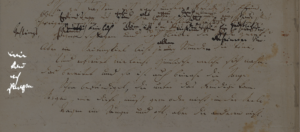
Das ‚Göttliche‘ im Homburger Folioheft. Über den Beginn eines partizipativen Forschungsprojektes zu Hölderlin
Ein aktuelles FWF-Projekt zu Friedrich Hölderlins „Homburger Folioheft“ geht der Frage nach dem Bezug zum Göttlichen im Werk des Dichters nach. In ihrem gemeinsamen Beitrag geben die Mitglieder des Projektteams, Jakob Deibl, Andreas Telser und Marco Fiorletta , einen Einblick in das Thema.
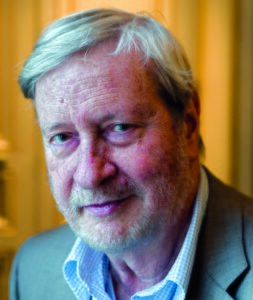
Anarchie der Freundschaft. Dank an Gianni Vattimo
Der italienische Philosoph Gianni Vattimo ist am 19. September 2023 im Alter von 87 Jahren verstorben. Mit ihm ist eine wichtige Stimme des philosophischen Diskurses der Gegenwart verstummt. Aber verstummt ein Denker, der seine gesamte Philosophie als freundschaftlichen Dialog verstanden hat, mit seinem Tod wirklich? Ein Nachruf und Dank an Vattimo, verfasst von Jakob Deibl.
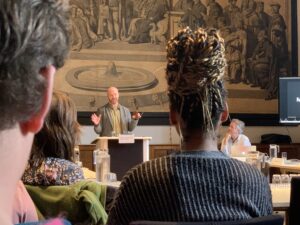
“Politics of Dis-enclosure: Religion – Community – Violence”. A Conference for the Decolonial Fugitivity of the Passer-by
What is the relation between religion, violence and community? How is it possible to think of being in common from a decolonial perspective? Some of these questions have been dealt during the conference „Politics of Dis-Enclosure. Religion – Community – Violence“ that took place from 26–27 April 2023. In this article Marco Fiorletta and Marian Weingartshofer give a small insight about it.
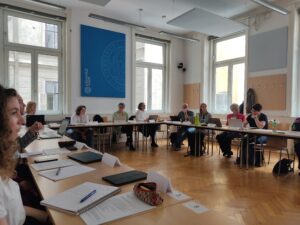
“Commentaries on Psalms”: Insights from a Workshop
In his article, Arnim Janssen-Wnorowska presents the results of a conference held on 5 June 2023 on the subject of „Psalm commentaries“. In particular the conference focused on Psalm 14 and Psalm 53, and tried to understand which new perspectives these Psalms may offer us.
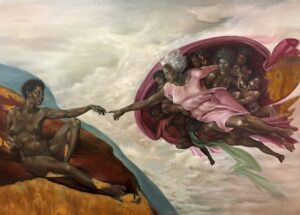
God’s Pronouns? Displacing Hegemonic Masculinity within Theological Scholarship through a Diversity of Language, Imagery, and Symbols
Drawing on two case studies, a Facebook post from the University of Vienna and Harmonia Rosales‘ The Creation of God, J.J. Warren shows how it is necessary to take a critical stance against the strictly binary and hegemonically masculinist idea of God. For this reason, Warren illustrates how a Critical Re-Imagining is necessary. He takes as his point of departure the apophatic tradition and the Catholic theologian Elisabeth Johnson, who argues that the naming of God in many genres is necessary and healthy for the whole life of the church.

‚Opfer‘ – eine theologische Kategorie unter Verdacht. Differenzierungen innerhalb eines schwierigen theologischen Konzepts
Karin Peter beschäftigt sich in ihrem Artikel mit dem Begriff des Opfers, der oft unklar und schwer zu verstehen ist. Dazu schlägt sie in ihrem Beitrag fünf verschiedene Modelle vor, um zu verdeutlichen, was unter Opfer im Zusammenhang mit den Themen Transzendenz, Transformation, Solidarität und Perpetuierung verstanden werden kann.

Deobandi ʿulamāʾ and Violence in Pakistan (part 2 of 2)
In the second part of his contribution Muhammad Bilal keeps to emphasize that confining Deobandi thought to a philosophy of violence is too simplistic. Taking the events of 9/11 as a starting point, the author emphasizes the cultural, social and especially realigious context in which Deobandi thought developed.